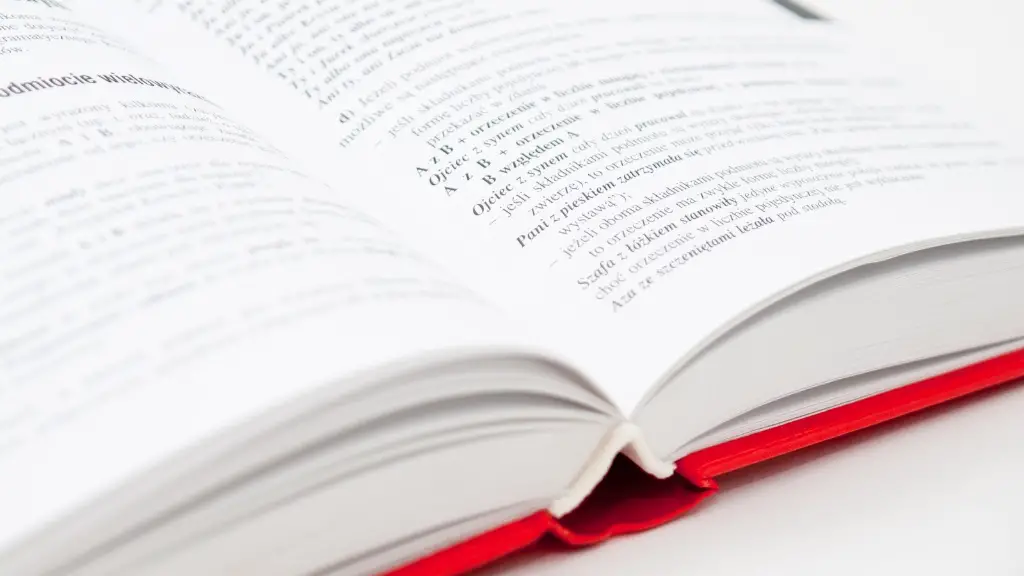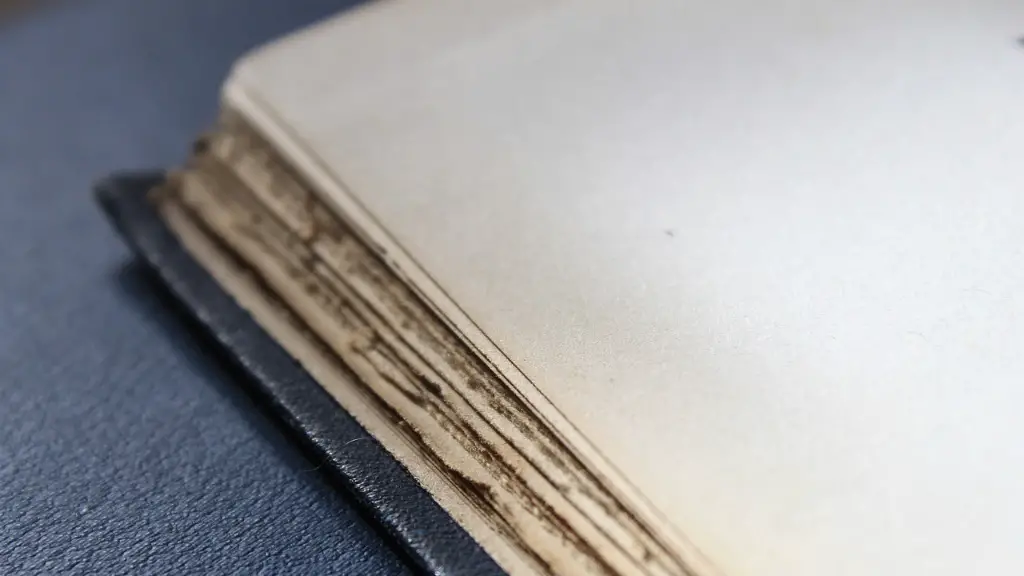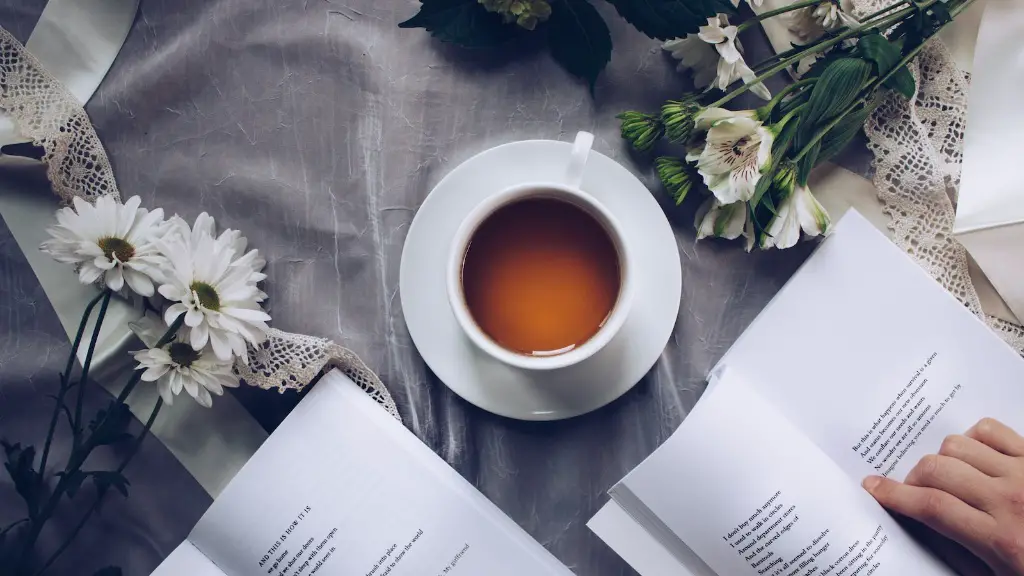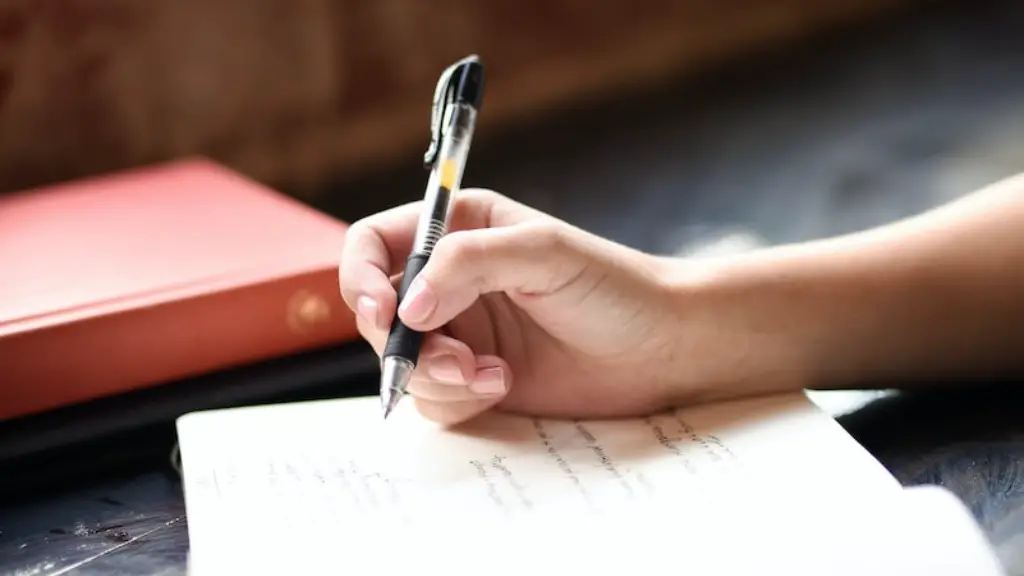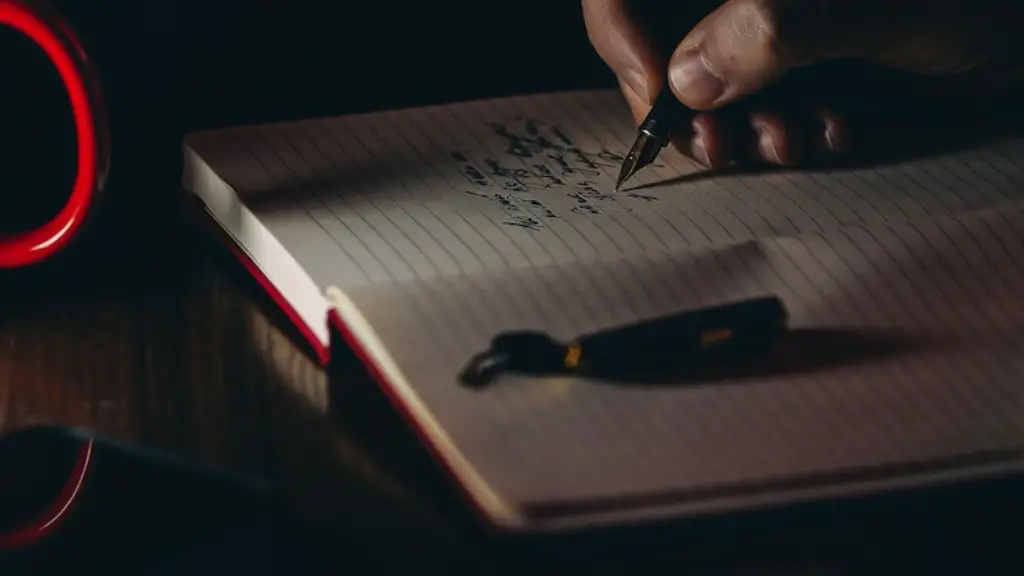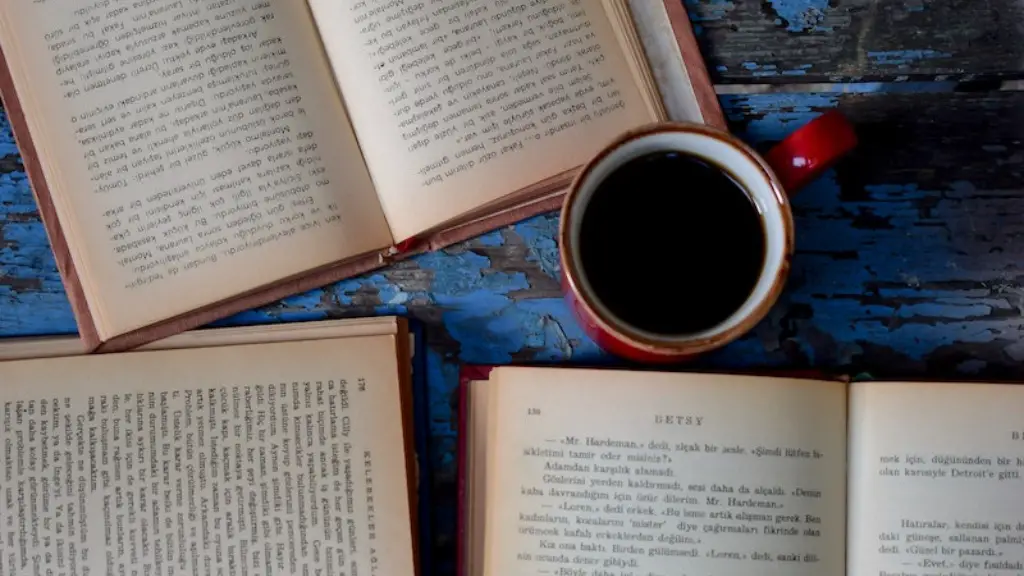Rhyme and Meter
Rhyme and meter are two important elements of poetry. Rhyme refers to the repetition of similar sounds in two or more words. Meter is the rhythmical pattern of a phrase or verse created by a pattern of stressed and unstressed syllables. Both of these components create harmony and structure in a poem, making it more pleasant to read and to listen to. By combining rhyme and meter, a poet can create poetic works that are both beautiful and emotionally charged.
Rhyme is an essential element of poetry, as it adds a certain element of musicality and beauty to the poem. It draws attention to the words and can be used to emphasize emotions or images. Rhymes also help to create a sense of balance and elegance in a poem, as well as connecting ideas within it. There are many different rhyme schemes, such as end rhyme and internal rhyme, which can be used to create different effects in a piece of poetry.
Meter describes the rhythm and flow of a poem, and it is often assessed in terms of stressed and unstressed syllables. This is known as “beat” in poetry, and it is instrumental in adding structure to the poem. Meter also helps to give the poem a sense of structure and continuity, allowing the poet to convey their message more effectively.
Both of these components are essential in creating a beautiful and dynamic poem. Rhyme and meter combined provide the poem with harmony, structure, and balance. It also adds a sense of musicality, which can be used to convey emotions or experiences in a poem.
Imagery
Imagery is a powerful tool used by poets to create vivid images in the reader’s mind. It involves using words or phrases to evoke vivid mental images to communicate a certain idea or emotion. Imagery can be used to create powerful images or express concepts in ways that are both abstract and concrete. It is a key element in poetry because it helps to create an emotional connection between the reader and the poem.
The use of imagery helps to emphasize certain ideas and concepts in a poem, and it can be used in a variety of ways. Similes and metaphors are common forms of imagery, allowing the poet to make quick comparisons between different ideas. Personification is another important form of imagery, which involves giving human characteristics to non-human entities. Personification helps to make abstract concepts more tangible and real.
By using imagery in their work, poets can craft powerful images and ideas that evoke emotions in the reader. Imagery can be used to emphasize the deeper meaning of a poem and create a more vivid and meaningful experience for the reader. By carefully crafting these images, the poet can create an emotional and powerful piece of poetry.
Form
Form is another important element of poetry and it refers to the overall structure and organization of a poem. Many different forms of poetry exist, such as sonnets, haikus, and ballads. Each form has its own particular rules and guidelines, as well as its own distinctive features that help to create a unique and meaningful experience for the reader. Each form also has its own distinct style, allowing the poet to express themselves in a unique and creative way.
Form is an important element of poetry because it helps to create structure and organization in the poem. It also helps to emphasize certain themes or ideas, as well as giving a sense of purpose and direction to the poem. Additionally, it adds a feeling of completeness to the poem, allowing the reader to get a better understanding of the poem’s meaning.
By following a particular form, a poet can create a well organized and meaningful piece of poetry. Forms can be used to express different ideas and emotions in a way that is both creative and meaningful. With the help of form, a poet can craft a powerful and moving piece of poetry.
Vocabulary
The vocabulary used in a poem is an important element of poetry. Poets use a variety of words and phrases to express their ideas in a creative and meaningful way. By carefully selecting the right words and phrases, poets can create vivid images and ideas that evoke powerful emotions in the reader. Different types of syntax and diction can also be utilized to make the poem more powerful and effective.
The vocabulary used in a poem can have a significant impact on the feel of the poem. It is important to choose the right words and phrases to convey the desired meaning of the poem. Complex and obscure words can be used to create powerful and dramatic effects, while simpler words can be used to create a more subtle and subdued feel. The choice of words is a crucial element of the poem, as it helps to craft the poem’s overall feel.
By carefully selecting the right words and phrases, poets can craft powerful pieces of poetry that are both meaningful and emotionally charged. With the right words, a poet can communicate their ideas with clarity and power, allowing the reader to experience the poem on a deeper level.
Language
Language is an important element of poetry. Poets use language in a variety of ways to express their ideas. They often use figurative language, such as metaphors, similes, and allusions, to create memorable imagery and ideas. Repetition and wordplay are also used to create powerful effects that resonate with the reader.
The language used in poetry is often very creative. This can range from poetic language, such as metaphors and allusions, to symbolic language, such as analogies and imagery. Poets often use language to create powerful images and ideas that evoke emotions in the reader. By carefully crafting the language used in their poetry, poets can create vivid and moving pieces that leave an impact on the reader.
Language is an important element of poetry, as it helps to create a powerful and moving piece of work. By carefully selecting the right language and crafting it into a meaningful poem, a poet can create a powerful experience for the reader. With the right language, a poet can craft an emotionally charged and memorable piece of poetry.
Theme
Theme is an important element of poetry and refers to the overall idea or message that the poem conveys. The theme of a poem can be anything from love and loss to fear and doubt. It is the unifying element that ties the poem together and gives it a sense of purpose and direction. Without a theme, the poem would be a collection of words and images with no deeper meaning or significance.
A poem’s theme helps to give the poem a sense of purpose, direction, and structure. It is an essential element in crafting a meaningful and powerful poem. By selecting the right theme, a poet can create an emotionally charged and meaningful poem that resonates with the reader. The theme of the poem is essential in creating a powerful experience for the reader.
Themes provide a unifying element and structure to a poem, allowing the poet to express their ideas in a powerful and meaningful way. By carefully crafting the theme of the poem, the poet can create an emotionally charged and moving piece of poetry that resonates with the reader. With the help of a strong theme, the poet can create a beautiful and powerful poem.
Mystery and Ambiguity
Mystery and ambiguity are other important elements of poetry. These elements help to create an element of surprise and tension in the poem, allowing the reader to draw their own conclusions. They also leave some parts of the poem open to interpretation, which can make the poem more powerful and more meaningful.
Mystery and ambiguity act as tools for poets to create powerful and meaningful ideas and images. They help to keep the reader engaged and intrigued by leaving some elements of the poem open to interpretation. By carefully crafting these elements, the poet can create a sense of surprise and tension that keeps the reader hooked and engaged.
Mystery and ambiguity are important elements of poetry, as they help to create a powerful and meaningful experience for the reader. By using these elements, the poet can create a poem that is both engaging and powerful. With the help of mystery and ambiguity, a poet can craft a beautiful and enigmatic piece of poetry that can leave a lasting impact on the reader.
